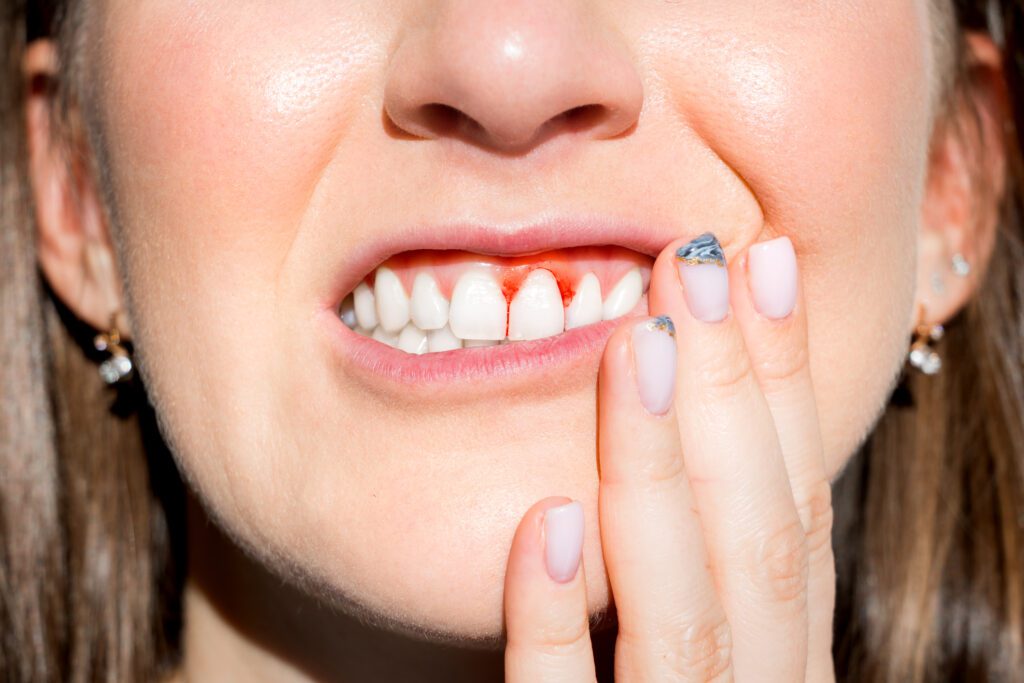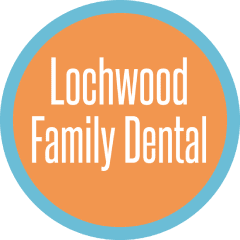Gum disease is a common condition that affects the gums and the bone supporting your teeth. If left untreated, it can lead to tooth loss and other serious health issues. Our team is dedicated to helping you maintain healthy gums and teeth through early detection, professional treatment, and personalized home care tips. We want to give you the tools and support you need to keep your smile healthy for a lifetime. We provide periodontal disease treatment in our Dallas, TX, dental office.
Gum disease treatment is part of our restorative dentistry services. When we treat gum disease, we renew the look, function, and comfort of your teeth and gums.

What Is Gum Disease?
Gum disease is an infection of the gums caused by plaque and bacteria buildup. It can develop slowly over time and is often painless in its early stages, which is why many people don’t realize they have it. However, if left untreated, gum disease can damage the tissues that support your teeth, eventually leading to tooth loss.
Gingivitis is the early stage of gum disease, characterized by red, swollen gums that may bleed when brushing or floss. The more advanced stage of gum disease is periodontitis. In the later stages of gum disease, the infection spreads deeper into the gums and bone. Over time, the gums pull away from the teeth and form pockets where bacteria can accumulate.
Signs and Symptoms of Gum Disease
It’s important to recognize the early signs of gum disease so you can seek treatment before the condition worsens. Common symptoms of gum disease include:
- Red, swollen, or tender gums
- Gums that bleed easily, especially when brushing or flossing
- Persistent bad breath or a bad taste in your mouth
- Receding gums (gums that are pulling away from the teeth)
- Loose or shifting teeth
- Pus between your gums and teeth
- Pain when chewing
If you notice any of these symptoms, contact us for periodontal disease treatment in Dallas, TX, as soon as possible. Early treatment can help prevent further damage to your gums and teeth. If left untreated, gum disease can lead to tooth loss.
Gum Disease Treatments at Our Dallas Office
Treating gum disease early is key to preventing more serious problems down the road. We offer a variety of treatments depending on the severity of your gum disease. Here’s an overview of the most common gum disease treatments we provide:
Scaling and Root Planing
This deep cleaning procedure removes plaque and tartar buildup below the gum line. It helps smooth the roots of your teeth, making it more difficult for bacteria to attach to them.
Scaling involves using specialized dental tools to remove plaque and tartar from the surfaces of your teeth and beneath the gums. Root planing smooths the roots of your teeth, helping your gums reattach to the teeth.
This treatment is typically used for patients with early-stage gum disease (gingivitis) or mild periodontitis. It can help stop the progression of gum disease and promote healing.
Antibiotic Therapy
Sometimes, we may recommend antibiotic therapy to help fight the infection in your gums. Depending on the severity of the infection, antibiotics can be applied directly to the affected areas or taken orally. We often use antibiotics with deep gum cleanings to remove remaining bacteria.
Gum Surgery
If other treatments, like deep cleaning or medications, aren’t enough to stop the disease, surgery can help restore the gums. We can refer you to a surgeon if you have advanced gum disease.
During gum surgery, a periodontist will clean out the bacteria and infected tissue from beneath the gums. They may reshape or reposition the gum tissue so it fits better around the teeth. In some cases, bone grafts or soft tissue grafts can replace damaged bone or rebuild receding gums. The goal of the surgery is to eliminate the infection, prevent further damage, and help keep your teeth and gums healthy.
How to Prevent Gum Disease at Home
While professional dental care is essential for treating gum disease, you can take steps at home to prevent it from developing in the first place. Here are some tips to keep your gums healthy:
Brush and Floss
Brushing your teeth twice a day with fluoride toothpaste helps remove plaque before it has a chance to harden into tartar. Be sure to brush all surfaces of your teeth, including along the gum line, to keep your gums clean and healthy. Flossing is one of the best ways to prevent gum disease because it removes plaque and food particles from between your teeth and under the gum line. If you find traditional flossing difficult, consider using floss picks or a water flosser.
Use Mouthwash
An antibacterial mouthwash can help reduce the bacteria in your mouth, keeping your gums healthy. Look for a mouthwash specifically designed to prevent gum disease and use it as part of your daily oral hygiene routine. These mouthwashes contain ingredients that target bacteria and help reduce plaque to keep your gums healthier. Some also contain fluoride to strengthen your teeth.
Eat a Healthy Diet
A balanced diet rich in vitamins and minerals can support your oral health and boost your immune system. A good diet can make it easier for your body to fight off infections like gum disease. Try to limit sugary snacks and drinks, as they can contribute to plaque buildup.
Visit Your Dentist Regularly
Regular dental checkups and cleanings are key to preventing gum disease. Our dentist can catch early signs of gum disease and treat them before they progress. Aim to visit our dental office every six months for a professional cleaning and exam.
Schedule Your Gum Disease Treatment in Dallas, TX
If you have symptoms of gum disease, don’t wait to seek treatment. We offer personalized care to help restore your gum health and protect your smile. We provide gentle, effective treatments to stop gum disease and prevent it from causing further damage.
Call Lochwood Family Dental for periodontal disease treatment in Dallas, TX at 214-544-9633. You can also request an appointment with us online.
